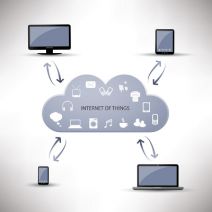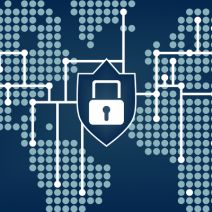Let’s say you get an email from a close friend. It looks like it’s legitimate, until you check the contents of the message. It’s an advertisement, or it’s trying to get you to click on a link to see something “important.” Regardless of what the content of the message is, you should probably slap that bad boy in the Spam section of your email inbox. You’ve just been the target of email spoofing, and it’s more common than you might think.
BNMC Blog
Bredy Network Management Corporation (BNMC) has been serving the Northeast area since 1988. BNMC works as a strategic business partner to provide organizations with proven design, implementation and support solutions.
0 Comments
Security is a huge problem for businesses that take advantage of the cloud, but never to the same degree. It’s often the nature of the industry which dictates how much a business should invest in cloud security. However, despite these differences in policy, there are some aspects of cloud security that absolutely can’t be overlooked, including data permissions, account security, vulnerability to malware, and other online issues.
Most computer users should practice the policy of ensuring optimal security on their PCs. To this end, assuming that you’ll be hacked (or at least targeted) at some point is pretty reasonable, as it allows you to plan ahead and take preventative actions. Still, there are plenty of people in the world who don’t care enough or worry enough to make security-minded decisions. Contrary to popular belief, there are countless ways that a hacker can take advantage of a hacked PC.
In the near future, there will be many new devices connecting to the Internet. Some will be useful, while others will be… not so much. Either way, the fact remains that, according to IDC, the Global Internet of Things (IoT) spending is expected to reach around $1.3 trillion by 2020. That’s a pretty huge number, and we’ll tell you why your organization needs to keep the IoT in mind when putting thought into your technology strategy.
Email is an aging communication protocol, but it’s still an important asset nonetheless. Even though society continues to push toward bigger and greater things, the modern office still depends on having an email solution for a communication medium. While we can’t get away from email completely, it’s important to make sure that using it is as easy as possible, especially for the busy business owner.
Security is a top priority in today’s business environment, especially following high-profile hacks of notable enterprises. Unfortunately, the fact of the matter is that these hacks could have been prevented if both the employees and employers of these organizations followed strict security best practices for their technology. Thankfully, it doesn’t have to be hard to teach your team how to properly use technology.
A good business practices extreme caution when using the Internet, thanks to hackers using any means possible to unleash threats against organizations of all sizes. You teach your employees how to avoid threats and to avoid suspicious websites, but what if that’s not enough to keep hackers out of your network infrastructure?
One of the most masterful arts of deception that hackers use is the phishing attack, which attempts steal sensitive credentials from unwary victims. The anonymity afforded to criminals on the Internet is what makes this possible. Using phishing attacks, hackers attempt to steal credentials or personal records by forging their identities. What’s the best way to protect your business from these attacks?
It’s natural to replace older technologies with better, more recent models. However, the future isn’t looking too bright for the world’s most common website encryption method, SHA1, which will soon be replaced by a more secure protocol. Pretty soon, browsers and devices may have some difficulty reading the latest security certificates, which could cause quite a problem if it’s not remedied.
With the Internet of Things continuing to gain popularity, we’re seeing more devices that connect to the Internet than ever before. However, what the users of these devices might be failing to take into consideration is the fact that the Internet is a dangerous place full of threats and other miscreants. What happens if these criminals decide to attack any of your connected devices? This is a relevant question to ask since October is Cyber Security Month, and The Internet of Things represents the next frontier of cyberspace.
This October is Cybersecurity Month! Some businesses think that they’re immune to hacking attacks because they’re “low profile” compared to huge corporations. However, the truth of the matter is that your organization is just as much at risk as they are. This month, take measures to keep your organization’s data safe, or risk losing everything in the fallout of a hacking attack.
With many organizations heavily relying on mobile computing, malicious operators have begun targeting the “low-lying fruit” of a business’ IT infrastructure, which is often a company’s mobile devices. Kemoge, a malicious adware strain designed to corrupt Android mobile operating systems, is the latest mobile threat that your business needs to protect itself against.
Logging into an account only to find out that you’ve been hacked can be a real hassle. If you’re wondering why and how this could have happened, you’re in luck; some accounts, like Google, record when and how the account is accessed, and finding out how is as easy as checking out your security settings. Here’s how you can see who is accessing your account, and how.
Have you ever wondered what hackers do with all of the data they steal on a regular basis? Sure, they could go public with it like they did with the Ashley Madison and Sony hacks, or they could sell it and make some quick cash. Credentials like passwords, usernames, Social Security numbers, and more, can be sold for top dollar in illegal markets, but how much can your identity go for?
Malware that targets ATMs isn’t a new concept. After all, ATMs use internal computers that can be hacked just the same as any old workstation. The prime difference is that hacking into an ATM allows for a direct dispensing of cash, rather than some crafty behind-the-scenes action. A new type of ATM malware, titled GreenDispenser, is a cause for concern in Mexico, and could spread to other countries if left unchecked.
Your identity has quite a lot of value, especially in the wrong hands. Security firm ZoneAlarm put together some numbers in 2011 concerning identity fraud, and it even shocked us. Let's talk about a few of these statistics and what it means.
Email is (and has been) a prime method of communication for businesses of all sizes. With email comes a whole slew of issues that are essentially synonymous with the technology; spam, information overload, phishing, and information privacy. Even Boston Metro and across the North East small businesses that only do business locally are at risk of these issues. Personal email accounts are equally at risk. Employing proper precautions and practices whenever communicating via email is very important to prevent the risk of security compromises, monetary loss, and even legality issues.




















